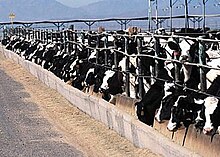WI's eased environmental regulation invites water privatization
So said the measure's lead Assembly sponsor:
The legislation was introduced at the request of a private water and sewer corporation based in Pennsylvania that may wish to acquire water utilities here, said Rep. Tyler August, R-Lake Geneva, the proposal’s lead author.
August said he was surprised by opposition because the state would continue to regulate water quality, sewage discharges and rates paid by customers for private systems just as it does for public ones.Well - - let's take a look at the current direction and priorities of the state's water and utility regulators - - the Wisconsin Department of Natural Resources and the Wisconsin Public Service Commission - - and see how their historic missions have been intentionally weakened in favor of corporate interests since Scott Walker was elected in 2011, and has governed with a nearly-unbroken string of ideological, pro-business majorities in the Legislature.
* Walker signed a bill in front of cheering realtors that eased wetlands protections, and he's just appointed a realtor and campaign contributor as chairman of the Wisconsin Natural Resources Board - - the DNR's oversight, policy-guiding body - - as wetlands' replacement work continues to lag.
The Realtors are also key players at and on behalf of the rightwing State Supreme Court majority.
* In 2011, Walker also immediately installed a harsh DNR critic as agency secretary because she had what he called a "chamber of commerce mentality," then filled out the leadership team with more veterans from major business and trade associations and more recently deeply cut agency scientists from the department budget.
* Little wonder that Wisconsin polluters have gotten tiny fines and other preferential treatment as DNR inspections and enforcement actions fell, records show. Not to worry, said the agency's senior managers - - it's all a matter of philosophy.
Which has its consequences:
With the help of powerful private sector interests, Walker and the legislature substantially weakened an important waterway protection effort - - the state's algae control and phosphorus pollution prevention program - - which had taken years of collaborative effort to craft and implement.
* The DNR recently refused to implement a judge's order following a lengthy hearing to limit the number of manure-producing cattle at a large dairy cattle operation.
* Though such so-called CAFOs, or Concentrated Animal Feeding Operations, can pollute nearby wells, and measurable contamination of harmful nitrates is increasing statewide.
* And the bigger picture is no better: the state has 700 impaired waterways by the agency's own count and in 2014 added dozens more to the list; paradoxically, the DNR is currently reviewing whether a major Walker donor can build an 18-hole golf course on 247 acres of forested, wetland-laden land at the edge of Lake Michigan near Sheboygan through which runs The Black River, one of those impaired waterways.
Opponents of the project's groundwater demands, deforestation, and planned incursion into an adjoining state park recently told the Wisconsin Natural Resources Board - - to which the DNR reports - - that test wells were drilled on the site without permits, among other concerns.
See and hear the opponents' ten-minute presentation beginning at the meeting's 2:21 mark, followed by about five minutes of Q & A.
* Separately, the DNR oversight board has put off a decision on whether to approve a controversial, separate state land sale involving another major Walker donor.
* The DNR has gotten "a rare rebuke" from the US Environmental Protection Administration over multiple failures to enforce the US Clean Water Act, forcing Wisconsin citizens to petition the US EPA for intervention and relief that is the state's responsibility to guarantee.
And over at the Public Service Commission? Pretty much the same 'philosophy.'
* As he did with the DNR, Walker quickly loaded up the Commission with corporatist allies and private-sector staffers.
That trend has continued; one recent senior PSC staff appointment went to a lobbyist who previously worked for the mining firm which lost a bid to dynamite the Penokee Hills and dig miles of deep open-pit iron mines in the pristine Bad River watershed near Lake Superior in northwest Wisconsin.
* Little wonder that the agency is road-blocking wind and solar innovations in favor of fossil-fuel options and special interests.
* Or that the agency is a key player in the state's litigation against new federal clean air rules even though smokestack pollution fouls the air and the waters below.
Those are our tax dollars being spent on that 'philosophy,' folks.
And why local preservationists, from Sheboygan to Kewaunee near the big CAFO to Bayfield County are taking initiatives which, in another era, would have been the supportive role of the DNR, rather than that of obstructor.
So you're dreaming if you think these agencies' political appointees and managers in the right-wing machine running the state these days will be vigilant defenders of the public interest should out-of-state businesses driven by profit for investors and dividends to shareholders begin buying or leasing Wisconsin water and sewerage utilities.










